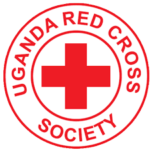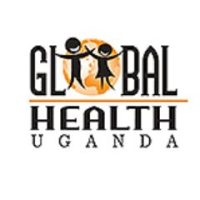The Epidemic & Pandemic Preparedness and Response Officer will be responsible for maintaining technical quality of the Epidemic & Pandemic Preparedness and Response program for Uganda Red Cross Society; training and building capacity within Uganda Red Cross Society and with partners as relevant, and overseeing the data management and timely actions in response to Community Based Surveillance (CBS) alerts raised by volunteers and communities.
Roles and responsibilities:
Supervise the implementation of Epidemic & Pandemic Preparedness and Response activities, with close monitoring for quality control in the field.
Support the Branch Community Based Surveillance (CBS) volunteers to work as a team, support them to manage CBS alerts and to coordinate with authorities for investigation and response.
Manage the CBS database in the central ‘CBS Hub’ – ensure the database is maintained up-to-date, investigation, response and outcomes are followed-up and documented.
Analyze CBS data on a daily and weekly basis to act on critical alerts and summarize the alerts and zero report performance.
Prepare reports, graphs, presentations, and publications for sharing the CBS data results with the field teams and with external partners. Contribute to evaluation studies.
Contribute to work plans, budgets, and reports for the implementation of CBS activities.
Ensure that NS CBS guidelines, protocols, training materials and monitoring systems are revised and up to date.
Lead CBS Master trainings in-country and coordinate and oversee cascade field trainings.
Support expansion of CBS and provide technical support and guidance on CBS to other programs and emergency response operations to ensure that all CBS implementations apply the standardized CBS method and data is managed in the central ‘CBS Hub’ database.
Actively collaborate with Ministry of Health, Ministry of Agriculture, and partners in TWGs and CBS-related forums on a regular basis, maintain positive professional relationships and represent the NS with high technical standard of CBS.
Collaborate with NS Branch management, District/Sub County officials, volunteers, and stakeholders in support of improved epidemic preparedness and response in communities.
Coordinate and link CBS with other CP3 program aspects, for instance data readiness.
Coordinate and link CBS with other NS departments such as WASH, Health, DM for disease response programs where CBS is relevant, such as cholera control or emergencies, immunization program, disaster response operations etc.
Ensure that surveillance guidelines, protocols and monitoring systems are adhered to by the volunteers for efficient data collection, correlation, analysis, interpretation for timely reporting and dissemination of information/alerts on disease outbreaks.
Prepare periodic activity reports- weekly, monthly, quarterly in line with program work plan and donor requirements.
Perform any other incident-specific duties assigned to you, as may be required by the functional supervisor.
QUALIFICATIONS/REQUIREMENTS
Minimum qualifications, working experience and competencies:
Education Qualifications
Minimum Bachelor of Medicine & Bachelor of Surgery Degree, Veterinary Medicine/Science, Public Health, Epidemiology, Nursing, or a related field from an approved, recognized and reputable university;
Post Graduate Qualification in Public Health, Epidemiology, Health Information Management Systems or Public Management of communicable diseases will be an added advantage.
Essential Experience
Minimum 2 years in a similar position, at the Regional/National level in implementation of Community-Based Surveillance, Public Health Surveillance, Integrated Disease Surveillance and Response (IDSR)
Core Competencies
Negotiation and conflict management
Innovation and creatively
Stakeholder management
Commitment to continuous learning
Communication
Technology awareness
Policy research and development
Change capability and adaptability
Manage resources
Empowering and building trust
Knowledge and Skills
High level of Integrity
Knowledge of working at field level with recognized organizations with expertise in health and emergencies response;
Knowledge of district health infrastructure and systems.
Knowledge conducting trainings and workshops.
knowledge supporting team of staff, especially by distance in field positions.
Sound knowledge and skills in database management and statistical analysis, monitoring and evaluation or public health information management.
Proven ability to multi-task across various planning and implementation processes within a highly demanding environment.
Demonstrated knowledge and professional skills on the public health aspects of infectious disease control, epidemic and pandemic preparedness and response with particular attention to application of an all-hazard approach in the context of the International Health Regulations (IHR), Global Health Security Agenda (GHSA) and the use of event based and indicator based surveillance









